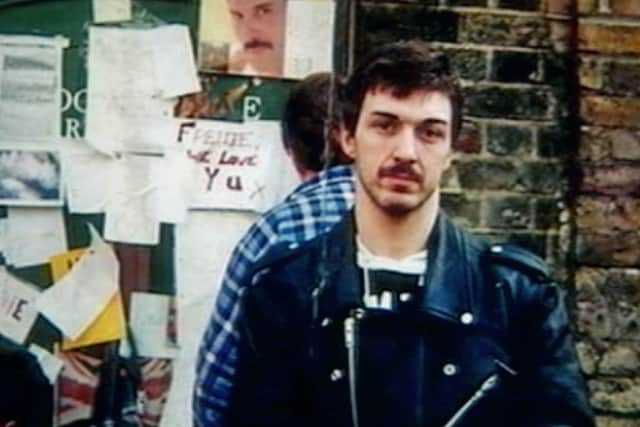Who is Barry George and what does he say in Who Killed Jill Dando? Netflix documentary revelations explained
and live on Freeview channel 276
Netflix’s latest true crime documentary Who Killed Jill Dando? will cover the horrific unsolved murder of the British journalist.
Dando, was just 37-years-old when she was killed in broad daylight by a single bullet wound on the doorstep of her home. The presenter had been a fixture on the BBC, presenting shows including BBC Breakfast Time and the One O’Clock and Six O’Clock News. At the time of her murder, she hosted Crimewatch alongside Nick Ross.
Advertisement
Hide AdAdvertisement
Hide AdDirected by Emma Cooper and Marcus Plowright, the three-part series will take a fresh look at the crime, including archive footage of Dando’s work and interviews from Barry George and Jill’s brother Nigel Dando.
George, was convicted of Dando’s murder in 2001, serving eight years in prison before he was acquitted in 2008. So, who was Barry George, what was he accused of and what has he said in the Netflix documentary?
Who is Barry George?
George was found guilty of the murder of Dando in July 2021, serving eight years in prison before he was acquitted of the crime in 2008.


The 63-year-old was born in London in 1960, he left school with no qualifications at 16-years-old. His only known employment was as a BBC messenger which lasted for five months. George had a criminal history, in 1981 he was charged with two counts of indecent assault which saw him receive a three-month sentence.
Advertisement
Hide AdAdvertisement
Hide AdHe was also known for going by a number of different names and personas including Paul Gadd, which is the real name of Garry Glitter and Steve Majors. In 1982, as Majors, he was convicted of attempted rape and served 18 months for a 33-month sentence.
What was he accused of?
George was arrested on 25 May 2000 for the murder of Jill Dando, he was officially charged on 29 May. Following the horrific murder, police launched a huge investigation which pointed to George as the main suspect.
He was convicted of Jill Dando’s murder in July 2001 and sentenced to life imprisonment. George appealed in 2002, but this was dismissed, he later appealed again in 2006, but it wasn’t until a retrial in 2008 that his conviction was quashed, seven years after he was convicted of one of the UK’s most infamous killings.
The key piece of evidence against George was a single particle of gunpowder that was found in the pocket of one of his coats. The particle matched those found at the crime scene, however years later doubt was later cast over this piece of evidence.


How much compensation did Barry George get?
Advertisement
Hide AdAdvertisement
Hide AdGeorge never received any money for his wrongful conviction and imprisonment. He attempted to claim compensation for “wrongful imprisonment” after serving eight years in prison for the murder of Dando. However, in 2010 his claim was rejected, as judges stated: “there was a case upon where a reasonable jury, properly directed, could have convicted the claimant”.
What has he said in Who Killed Jill Dando?
George features in the trailer of the Netflix documentary, which includes a clip of him telling the camera: “It makes me angry that they’ve taken eight years of my life”. The three-part series will include interviews of George and give his side of the story, including his wrongful conviction, imprisonment and subsequent acquittal.
In an interview with the Mirror, George who now lives in Ireland explained why he would be appearing in the documentary, he said: “The end game is I want to show, publicly, that there’s no way I could have done this.”
Continuing that he doesn’t “feel free”, he said: “Not when I feel like I’m having to look over my shoulder all the time in case there are people following me about, or police forces potentially trying to fit me up for something else. In that sense, I don’t feel free. To be outside a prison wall, yes I feel free, to a certain degree.”
Comment Guidelines
National World encourages reader discussion on our stories. User feedback, insights and back-and-forth exchanges add a rich layer of context to reporting. Please review our Community Guidelines before commenting.
